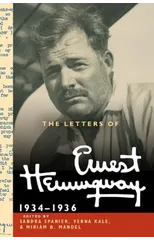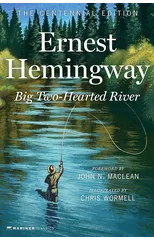""The Sun Also Rises"" is a classic novel by Ernest Hemingway that paints a poignant portrait of the post-World War I generation. Set primarily in the vibrant ambiance of 1920s Paris and the enchanting landscapes of Spain, the narrative follows a group of disillusioned expatriates as they grapple with the aimlessness and disillusionment pervading their lives. Amidst the backdrop of bullfighting, parties, and encounters with love and loss, the characters navigate a world haunted by the scars of war, grappling with the disintegration of traditional values and the search for meaningful existence. Hemingway's spare and evocative prose captures the emotional complexities and existential crises of the Lost Generation, exploring themes of love, masculinity, and the pursuit of authenticity. ""The Sun Also Rises"" remains a timeless meditation on the human condition, etching an indelible mark on the landscape of modern literature.
Ernest Hemingway
Ernest Hemingway (1899-1961) was an American novelist, short story writer, and journalist known for his distinctive writing style and portrayal of masculinity. His most notable works include "The Old Man and the Sea," "A Farewell to Arms," and "The Sun Also Rises." Hemingway's writing is characterized by its spare prose, realistic dialogue, and emphasis on themes of war, love, and loss. He is credited with revolutionizing the modern American novel and influencing generations of writers with his minimalist approach to storytelling. "The Old Man and the Sea," a novella about an aging fisherman's struggle with a marlin, remains one of Hemingway's most famous and enduring works, winning him the Pulitzer Prize for Fiction in 1953 and solidifying his reputation as a literary giant.






